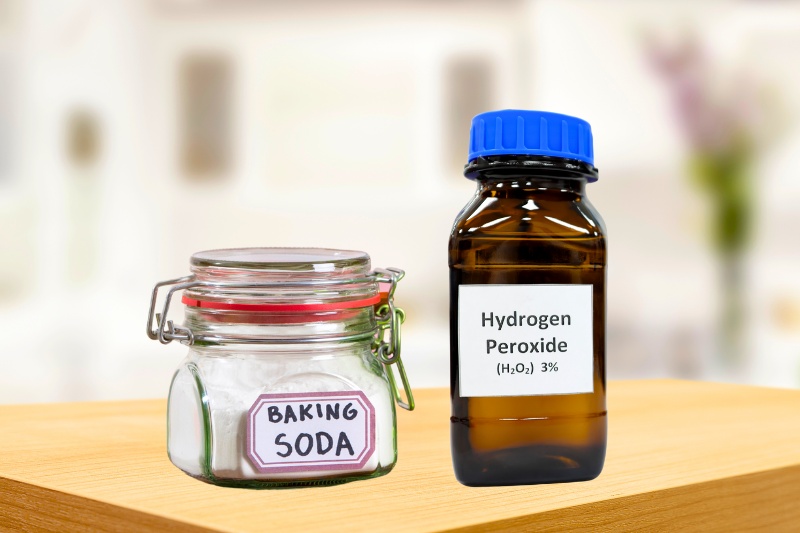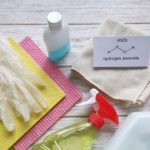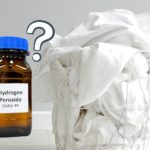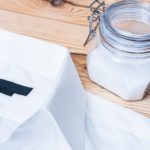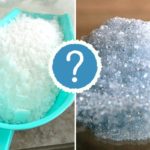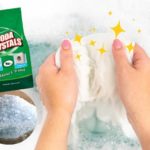Hydrogen peroxide and baking soda are two household staples that have a multitude of uses individually.
Hydrogen peroxide is a powerful disinfectant and cleaning agent, while baking soda (usually known as bicarbonate of soda in the UK) is renowned for its versatility in cleaning, deodorising, and even as a cooking ingredient.
Given their separate super-charged cleaning properties, it’s natural to wonder whether these two cleaning staples can be combined to create an even more potent cleaning solution.
In this article, we’ll explore the potential outcomes, benefits, and risks of mixing hydrogen peroxide and baking soda.
Mixing Hydrogen Peroxide and Baking Soda: What Happens?
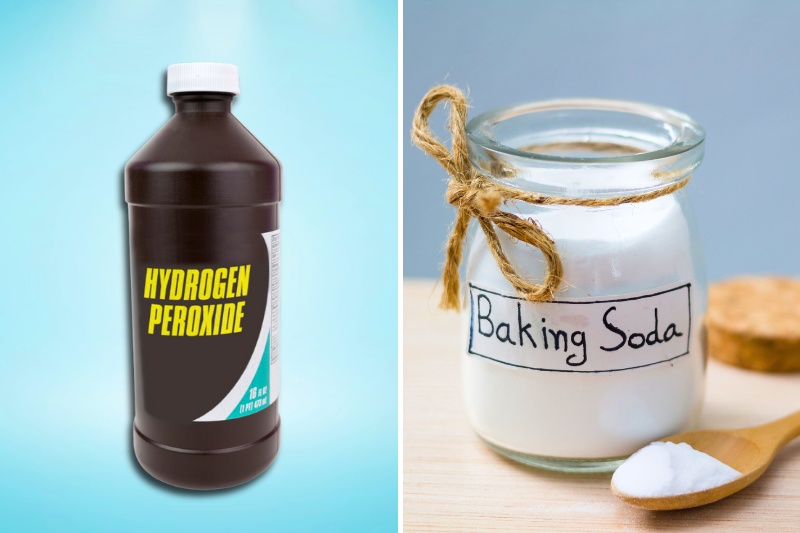
When hydrogen peroxide and baking soda are mixed together, a chemical reaction occurs.
However, this reaction is not as dramatic or visually striking as the reaction between baking soda and vinegar.
Instead of producing a significant release of gas, the mixture tends to effervesce (fizz) mildly. This effervescence is due to the fact that hydrogen peroxide is slightly acidic, and when it reacts with baking soda, carbon dioxide gas is released along with water.
While we wouldn’t recommend mixing these two ingredients in an air-tight room, it is perfectly safe to mix the two together in a ventilated space.
Just before we get to why mixing these two cleaning products together is a great idea, here’s some of the chemistry behind the process.
The Chemistry Behind the Mix
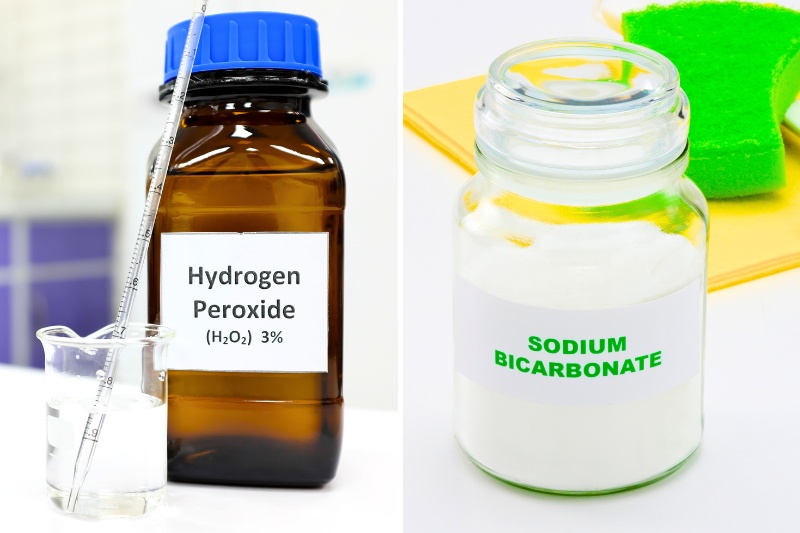
- Hydrogen peroxide (H2O2): This is a chemical compound consisting of two hydrogen atoms and two oxygen atoms, with an extra oxygen molecule compared to water (H2O). It’s commonly used as a disinfectant, antiseptic, and bleaching agent due to its ability to release oxygen upon decomposition, which can break down organic matter and kill bacteria.
- Baking soda (sodium bicarbonate, NaHCO3): Baking soda is an alkaline compound that, when it comes into contact with acidic substances, releases carbon dioxide gas. This gas is what gives rise to the characteristic bubbling and fizzing reactions observed when baking soda is mixed with acidic substances.
So, one is an alkaline, and one is an acid. Mixing the two, then, can create an impressively powerful cleaning product suitable for lots of chores around the home.
Potential Reasons for Mixing Hydrogen Peroxide and Baking Soda
Cleaning surfaces
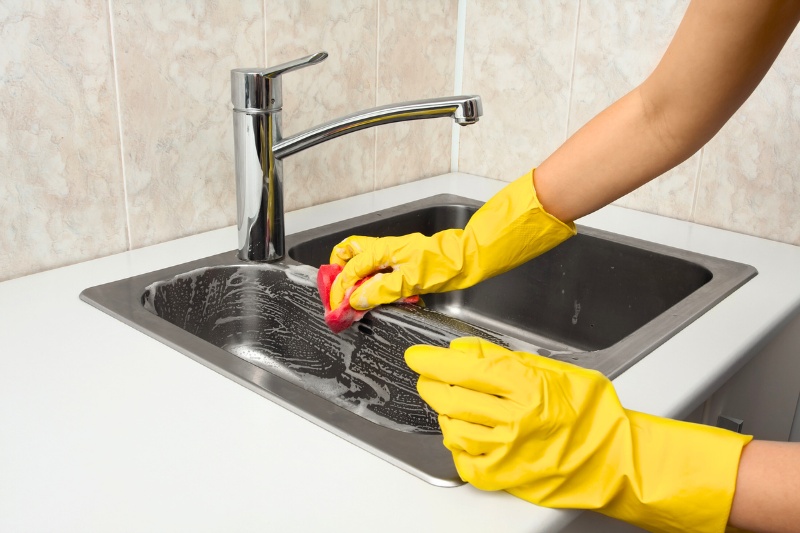
When combined, hydrogen peroxide and baking soda can create a mild abrasive mixture that can be effective in scrubbing surfaces.
This can be particularly useful for tackling tough stains and grime on surfaces like sinks, countertops, and tiles.
Leave the solution to soak in to allow the acid of the hydrogen peroxide to work, and you’ll be left with clean, shiny sinks, countertops and more.
Whitening
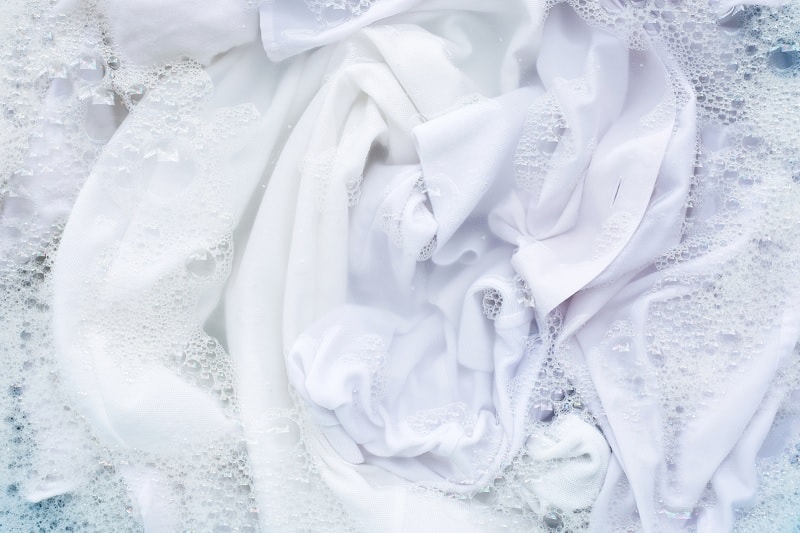
Both hydrogen peroxide and baking soda are known for their cleaning power, and both work wonders on clothes.
Baking soda can all but eliminate watermarks, and hydrogen peroxide is ideal for keeping whites white. When combined, they create a cleaning solution that no stain is safe from.
Deodorising
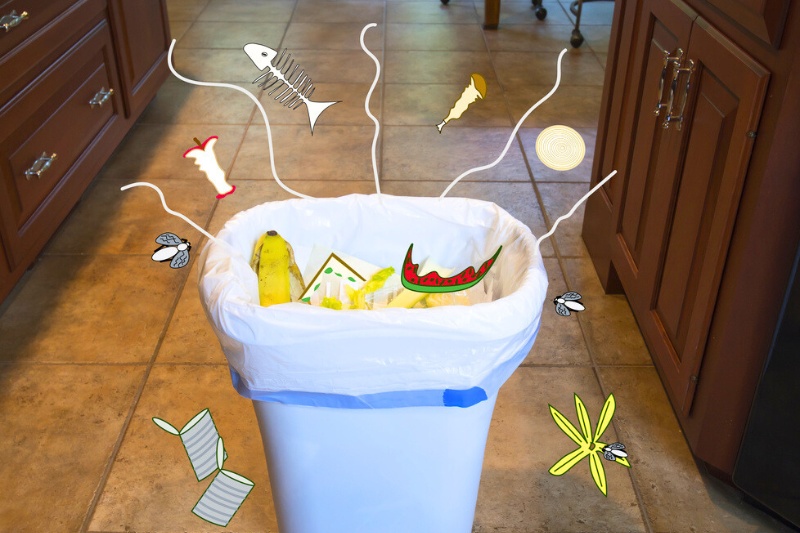
The effervescent reaction of these two substances can help in neutralising odours. This makes the mixture suitable for deodorising items like shoes, trash cans, and refrigerators.
Baking soda can be used to tackle a lot of odours alone, but if you have some very strong smells to tackle, it might be worth combining the two.
Cleaning grout
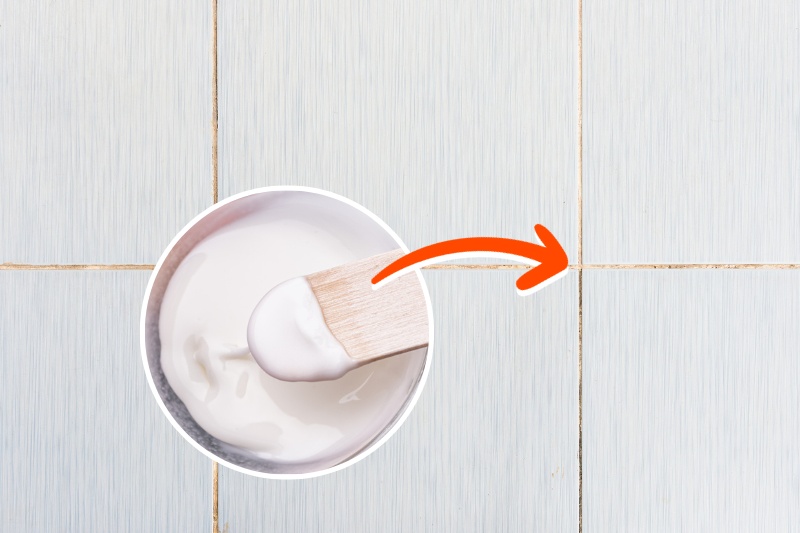
Grout between tiles can be notoriously difficult to clean. A paste made from hydrogen peroxide and baking soda can be applied to grout lines, left to sit for a while, and then scrubbed to brighten and clean the grout.
The hydrogen peroxide is great for whitening the grout, and the baking soda offers an abrasive quality to get rid of mould and dirt.
Risks and Precautions
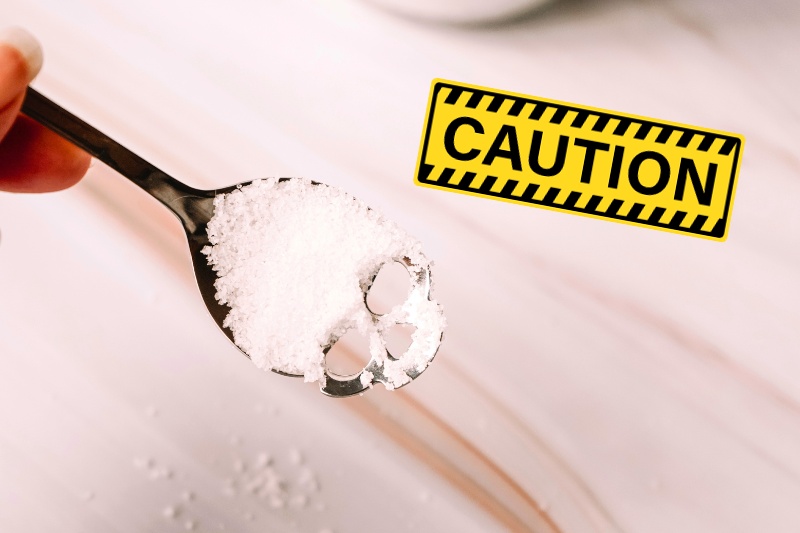
While the combination of hydrogen peroxide and baking soda has its potential benefits, it’s important to be aware of the risks and exercise caution.
Skin and eye irritation
Hydrogen peroxide, even in diluted forms, can cause skin and eye irritation. When mixing it with baking soda, ensure you don’t come into direct contact with the mixture, and use protective gloves if needed.
Residue buildup
Depending on the surface being cleaned, the mixture might leave behind a white residue. Always test a small, inconspicuous area first to make sure the mixture doesn’t damage or leave marks on the surface.
When you are finished cleaning with the mixture, always ensure to wipe the surfaces down with clean water; this will keep the white residue to a minimum.
Avoid ingestion
While using the mixture for cleaning purposes is generally safe, avoid ingesting it. Ingesting hydrogen peroxide can lead to stomach discomfort, and baking soda in large amounts can disrupt the body’s pH balance.
Lack of disinfection
While hydrogen peroxide is a disinfectant, its effectiveness can be reduced when mixed with baking soda.
The effervescence produced by the mixture might limit the contact time necessary for disinfection. So, if you want to disinfect the surface, use hydrogen peroxide alone or another cleaning product.
In Conclusion
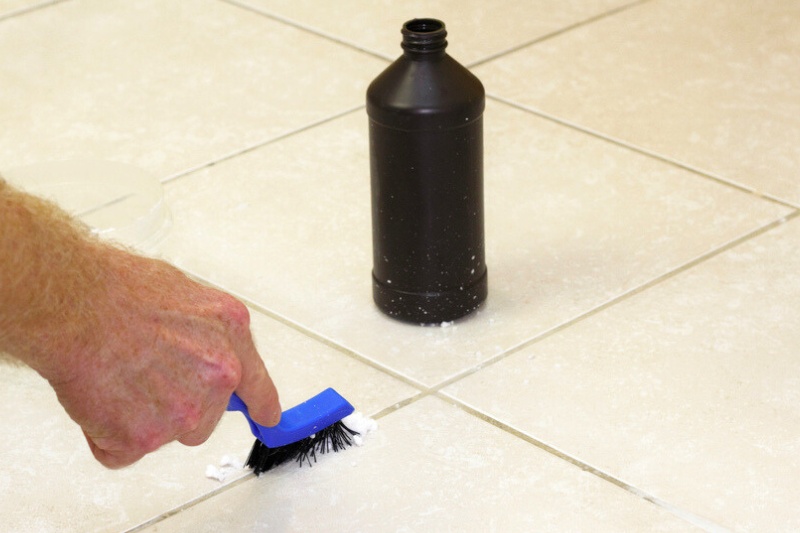
Mixing hydrogen peroxide and baking soda can create a mildly abrasive and effervescent mixture that offers great results in cleaning, deodorising, and minor stain removal.
While it might not yield as dramatic a reaction as other combinations, it can still serve as an excellent cleaning tool for certain household tasks.
However, caution must be exercised to avoid skin and eye irritation, residue buildup, and ingestion.
As with any cleaning solution, it’s advisable to test the mixture in a small area before applying it to larger surfaces.
Want to find out some more uses for baking soda? Well, you’re in luck. Baking soda is one of our favourite cleaning products at In The Wash, and we have loads of articles about its magical cleaning power. If you have something to clean, chances are baking soda can help!

In The Wash is your guide to the best laundry and cleaning products, tips and tricks. Our mission is to solve the UK’s cleaning and laundry dilemmas!
